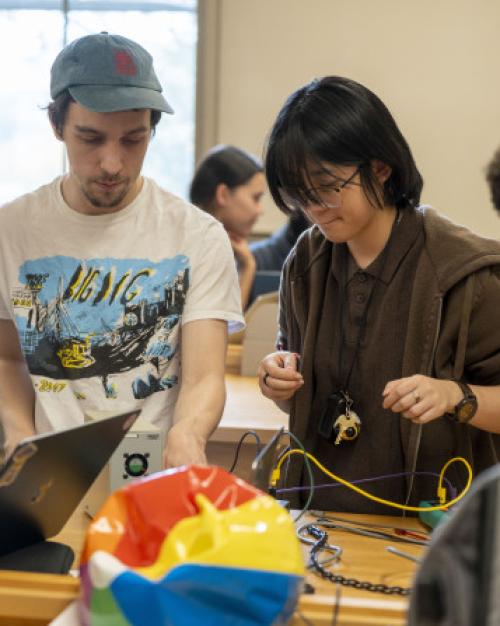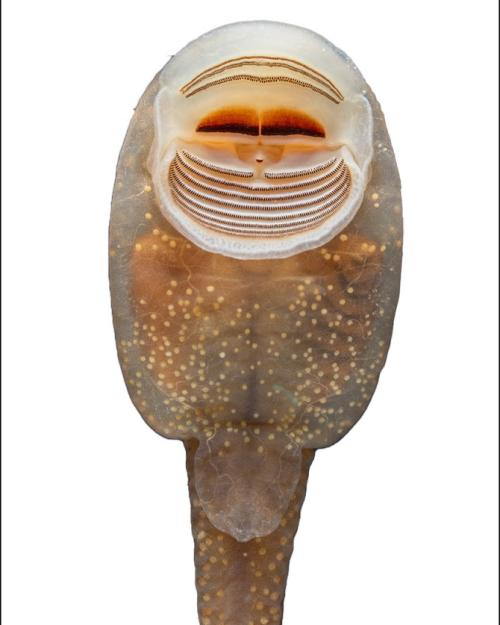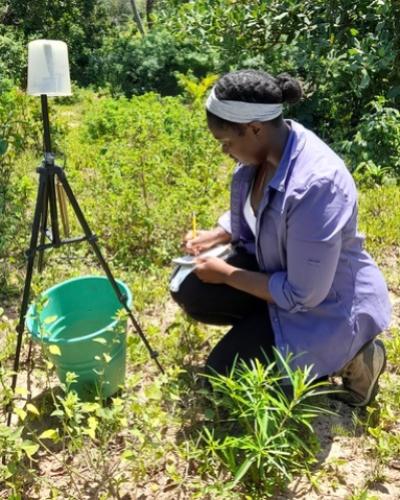Sudan Kariuki investigated deforestation on the south coast of Kenya – and discovered the most valuable part of the experience was learning from local scientists and Indigenous elders.
“None of my work would have been possible without their extensive regional knowledge and generous commitment to collaboration in service of Kaya forests,” said Kariuki, a PhD candidate in ecology and evolutionary biology in the College of Agriculture and Life Sciences.
Her research in Kenya was supported by a Fulbright-Hays Doctoral Dissertation Research Abroad award. The competitive fellowships send PhD students abroad for up to 12 months to build on their language proficiency, engage with other cultures and complete significant dissertation research on global cultures and societies.
Kariuki spent her year investigating the dry tropical forests of Kayas – a region sacred to the area’s Mijikenda peoples. By measuring factors like abundance and biodiversity of soil fungi, leaf nitrogen content and topsoil nutrient availability, she sought to understand the impact of deforestation caused by tourism, urbanization, mining and agricultural development in the region.
Her collaborators included Mijikenda elders and experts from the National Museums of Kenya and the Kenyan Forestry Research Institute.
“Along the way, they often pointed out the cultural values of native plants – many are medicinal – and noted areas of the forest where prayers and burials are conducted,” she said. “They asked great questions about my process and preliminary findings and made helpful suggestions about the best places to sample soil and leaves.”
Nine Cornell graduate students have received Fulbright-Hays awards since 2020. The Mario Einaudi Center for International Studies – the home of Cornell’s Fulbright program – advises and supports students throughout the application process.





